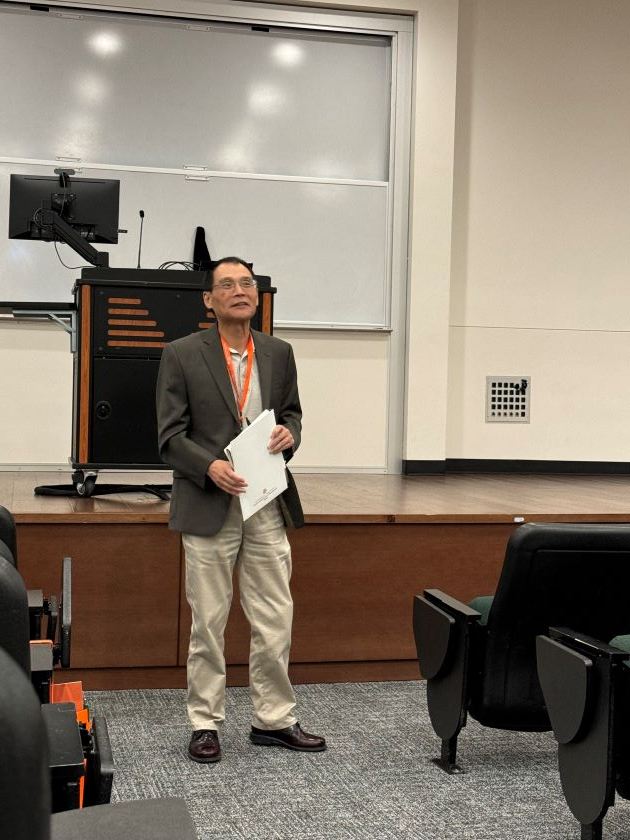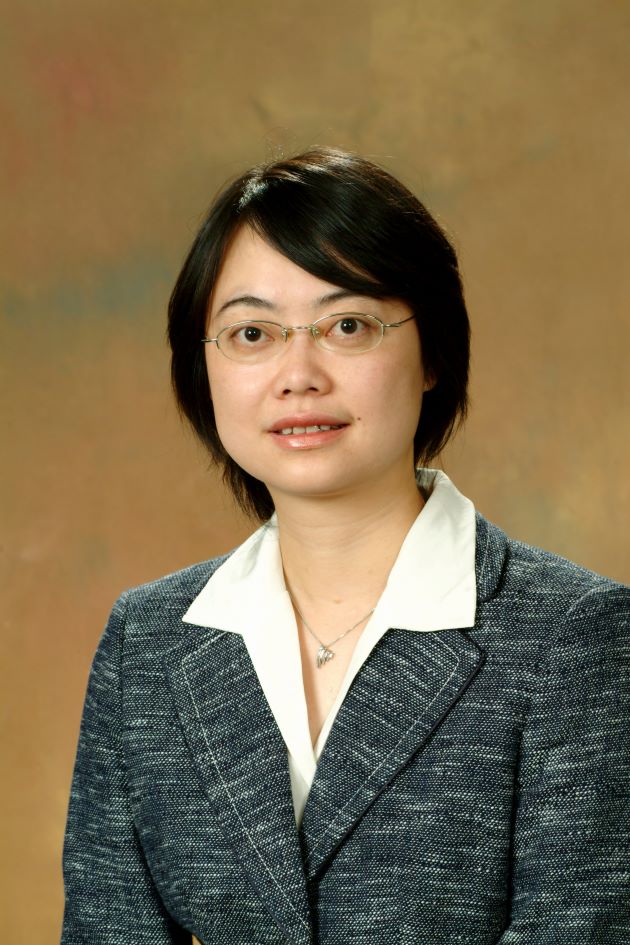![[descriptive alternative text]](/jindal/files/2023/10/finance_conference_2023_630x840.jpg)
Attendees noted the opening presentation as a highlight. Dr. Denis Sosyura, professor of finance at Arizona State University, represented the authors of a paper titled “Remotely Productive: The Efficacy of Remote Work for Executives.” He discussed the research team’s findings when it comes to CEOs working remotely. When CEOs who work remotely are terminated, he said, the company’s stock tends to increase. Companies also revise their executive agreements to require that the successor stays on the premises.
Leland Bybee, a PhD student in finance at Yale University, was one of the impressed when it came to that first presentation. He also noted the overall feel of the conference.
“The key with this conference is you are getting the right kind of people together and focused papers,” he said. “The 20-minute talk, the 20 minutes given to someone assigned to assess the researchers’ work and the engaging topics — very interesting research and you can hear how people are responding.”
He also appreciated how the conference discussions involved findings that could have application to everyday work.
“This conference is refining ideas and having important discussions,” he said. “The paper on working from home did a lot of interesting work to get the data to really show the performance of CEOs. Just those real-world applications here, getting into what is really on the mind of many people — that will grab your attention.”

Dr. Christopher Reilly, an assistant professor in the Finance and Managerial Economics Area at the Jindal School, was also impressed by the impact the conference had.
“People forget this is where collaborations can start,” he said. “The conference does a great job with the sessions but also providing the environment to discuss possible new work…The statistics have been interesting. When I heard about 18 percent of CEOs don’t live where the company is, I was really surprised by that. The bond fragility paper showing that institutional features may be less worrisome than many think — that also stood out. There has been a lot of thought when it comes to statistical analysis in these papers.”
The conference discussions were not all about research that was far along. Value can be derived from a paper in the early stages — getting direction to steer it toward more honed research or considering points it may never have looked at before.
“I think the conference has a great diversity of papers and topics and I’m learning a lot,” said Dr. Aaron Pancost, assistant professor of finance at the University of Texas at Austin, not long before he took the stage on with a question related to the paper “Bailing Out (Firms’) Uninsured Deposits: A Quantitative Analysis.” What would happen if depositors’ money that was over the $250,000 FDIC protection limit had not been covered in recent bank failures? Pancost said the answer from the paper’s research was nothing.
The presentation shared the shift in uninsured deposits being bailed out, stating that from 1986-Sept. 2008 uninsured deposits were bailed out in 70 percent of bank failures. From Oct. 2008-2022, that number jumped to 94 percent.
The conference went against a common format found in many conferences — that of concurrent sessions. Dr. Sean Myers, assistant professor of finance at the University of Pennsylvania’s Wharton School, found that a distinct plus for this particular event.
“By having everyone together for each discussion, rather than small sessions running at the same time, you carry the conversation through to dinner and get a deeper analysis of each paper by the fact that everyone can weigh in,” he said. “There have been great discussions going on.”

Dr. Han Xia, Sydney Smith Hicks Faculty Fellow and an associate professor in the Jindal School’s Finance and Managerial Economics Area, was conference co-chair. He said this conference is a true jewel in the crown of what make the Jindal School a standout: research.
“We’re gathering researchers from different parts of the world and that’s perfect because our school is a research leader and this is the place for them,” he says. “Here is where we can improve the finance industry through presentations, collaborations and addressing practical issues. There are real policy implications in the research here and it’s exciting.”

Dr. Harold Zhang, professor and area coordinator in the Jindal School’s Finance and Managerial Eeconomics Area, also sees the event as a bolstering of the Jindal School’s place as a research leader.
“This conference is a great support when it comes to our long-term reputation of the school as a destination for high quality research,” he said. “It’s terrific visibility. You look at how selective it is in choosing only about five percent of submissions and the kinds of submissions that were received. Well-thought-out, passionate, the depth. This is a great platform to get strong feedback and improve their work.”

Dr. Kelsey Wei, an associate professor in the Jindal School’s Finance and Managerial Economics Area, said this conference has come a long way from its inception.
“This was started some years ago and initially it was small,” she said. “We’re doing well in the rankings and when you look at an event like this it just shows how we’ve become a strong research resource.”





